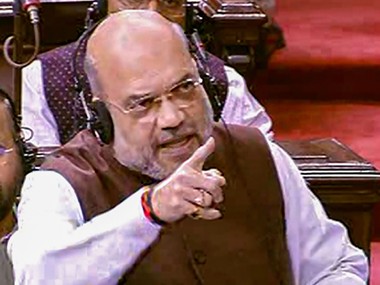First of all, understanding the contours of the issue from a legal theoretical standpoint is essential. It has been argued that Article 370 was a repository of the contractual obligation of the Indian State with the promises that were made to the then independent princely state of Jammu and Kashmir. Although the line of argument is broadly true, however, under International Law, the contractual obligation of any sovereign State, like India, is usually towards another sovereign State, or an international organisation, and not some entity which loses its sovereignty by the virtue of signing that contract (Instrument of Accession), which is Jammu and Kashmir in this case. The state that lost its sovereignty can’t compare or claim its rights with or from a sovereign State in the same sense, the ones to which it could have been entitled had it been a sovereign. Sovereignty in its essence means absolute independence and no subordination. Moreover, it’s interesting to note that the Instrument of Accession (IoA) was signed between the princely state of Jammu and Kashmir and the Dominion of India. Dominion of India was a political body created through the legislative process of the British Parliament (Indian Independence Act, 1947), in the exercise of its own sovereignty (British Parliament’s) and by no legal theoretical standpoint can be called a sovereign entity (Dominion of India, that is). [caption id=“attachment_7113191” align=“alignleft” width=“380”] Union Home Minister Amit Shah speaks in the Rajya Sabha. PTI[/caption] Hence, it can be understood that the IoA was signed between two non-sovereign entities. With the promulgation of the Indian Constitution, the Dominion of India was vanquished and the Union of India emerged as the successor State with full sovereignty. Therefore, the contractual obligations of the Union of India towards Jammu and Kashmir, which by now had lost its autonomy of accession, could only have been claimed in good faith, and the entire basis of claiming them legally stood scrapped. The argument that Article 370 contained contractual obligations of the Indian State arising out of the IoA, therefore, lacks any legal basis. This then begs the question, what actually is the constitutional intention behind Article 370. This question can only be answered politically, not legally. The provision intended to guard the politics of the day of its enactment, which meant the unstable political situation of the state, resulting from the Pakistani invasion. The Constitution-makers, through Article 370, just intended to make sure that the condition is eased through such a measure. As it turned out, even after 70 years, the political situation was hardly influenced in the positive sense through the provision. Hence, doing away with it or preserving it remained a political choice and not a legal one. In US Constitutional Law, such situations are governed by an explicit legal mechanism, known as the doctrine of political question. The doctrine stipulates that there are certain situations or disputes that are best settled by politics and not through the process of the court. These matters are essentially ’non-justiciable’. The Indian Supreme Court has on various occasions not dismissed the doctrine, but has imported it with limitations. In the Indian context, the apex court has also time and again, and as recently as in the Aadhaar verdict, held that matters pertaining to State policy are non-justiciable and hence out of the domain of legal scrutiny and judicial review. A non-justiciable measure can be understood as simply as the increase or decrease of monetary policy rates by the Reserve Bank of India, as adverse they might be on occasions, one just can’t imagine challenging them in a court of law. The situation of Jammu and Kashmir and its dynamics with the Indian State are again exclusively matters of policy and politics and there is nothing much the legal system can do about it. The important ramification of understanding the situation as that of policy and politics rather than that of law and Constitution, is that the entire debate on the legality of the action of the government is rendered infructuous. The issue had to be decided through an executive action simply because, executive exclusively wields and manifests the real sovereign authority of the State, and when it has signalled through a proclamation, its intent, the requirement of legality is that of prima facie relevance. Follow all the LIVE updates from Jammu and Kashmir here That said, the legal requirement was also satisfied in the sense it was required. There are doubts that since Article 370 (3) required the consent of Constituent Assembly of the state, which had long been abolished, how can a proclamation be issued? This is a very weak legal standpoint to sustain. It is a settled position of constitutional law, globally, that any legislative body having the power to amend the Constitution, has constituent power and functions as a Constituent Assembly while doing so. One only has to go through Article 368 of the Indian Constitution, which reads as Constituent Power of the Parliament, meaning that the Parliament functions as a Constituent Assembly while amending the Constitution. Since Jammu and Kashmir had the power to amend its own Constitution, it can very well be regarded as the Constituent Assembly. When Parliament assumed the legislative function of the State, it naturally also assumed the constituent function of the Assembly. Hence, all the questions pertaining to the legality of the government’s action do not stand up to legal scrutiny; it is only a matter of time before the same will be iterated by the Supreme Court, if the action is at all challenged.
The Union government’s decision to effectively scrap Article 370 through a Presidential Notification has intrigued a lot of experts in the legal domain. However, sifting through the technicalities, it can be understood that this move is constitutional in toto and complies with all the legal requirements that were to be respected
Advertisement
End of Article


)

)
)
)
)
)
)
)
)



